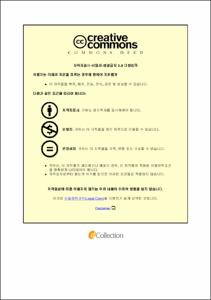서비스 중소기업 최고경영자의 특성이 경영성과에 미치는 영향
- Abstract
- This study analyzed the effect of the characteristics of the CEO of service SMEs on business performance. As a result of reviewing previous studies, the characteristics of CEOs were classified into psychological characteristics, competency characteristics, and leadership characteristics. Business performance was measured by financial performance, such as sales, operating profit, and cash flow, and non-financial performance by environmental improvement and social value realization. Research models and hypotheses were derived to examine the relationship between top management characteristics and management performance.
For the empirical analysis to verify the hypothesis, a survey was conducted targeting the stakeholders of small and medium-sized enterprises (SMEs) in the Busan-Gyeongnam area. A total of 283 questionnaires were collected, and empirical analysis was conducted based on 262 questionnaires, excluding 21 of insincere answers. As a result of empirical analysis, first, in the psychological characteristics of CEOs, risk tolerance was found to have a significant effect on financial and non-financial performance. It means that top management needs the ability to take risks and respond boldly. Second, it was found that the management competency of the CEO has a significant effect on financial and non-financial performance. These results show that the CEO's ability to present a corporate vision, allocate human resources in the right place, and lead the organization are very important key variables. Third, in terms of leadership characteristics, it was found that the liberal democracy type had a significant effect on non-financial performance and the dictatorship type had a significant effect on financial performance. In particular, it can be seen that liberal and democratic leadership emphasizes relationships with employees and is very interested in eco-friendliness and the realization of corporate social values.
This study is meaningful in that it empirically analyzes the influence of the characteristics of the CEO of service SMEs, and in that it systematically conducted a study by classifying the characteristic factors considered important in the management field. Therefore, it can be said that the personal competency of the CEO is the most important factor in corporate competitiveness in the management of service SMEs.
- Issued Date
- 2022
- Awarded Date
- 2022. 2
- Type
- Dissertation
- Keyword
- CEO characteristics psychological characteristics competency characteristics leadership characteristics Management performance
- Publisher
- 부경대학교
- Affiliation
- 부경대학교 대학원
- Department
- 대학원 경영컨설팅협동과정
- Advisor
- 최순권
- Table Of Contents
- I. 서 론 1
제 1 절 연구의 배경과 목적 1
1. 연구의 배경 1
2. 연구의 목적 3
제 2 절 연구의 구성 4
II. 연구의 이론적 배경 6
제 1 절 서비스 중소기업과 서비스 산업의 현황과 중요성 6
1. 서비스 중소기업의 정의와 분류 6
2. 서비스 중소기업과 산업의 현황 9
3. 서비스 경제와 서비스역량에 관한 연구 11
제 2 절 최고경영자의 심리적 특성과 경영성과 17
1. 위험감수성 18
2. 성취동기 20
제 3 절 최고경영자의 역량적 특성과 경영성과 22
1. 관리역량 22
2. 서비스역량 24
제 4 절 최고경영자의 리더십 특성과 경영성과 28
1. 리더십 28
2. 리더의 행동 리더십 29
제 5 절 최고경영자의 일반적 특성과 경영성과 31
III. 연구모형과 가설의 설정 39
제 1 절 연구모형 39
제 2 절 연구가설의 설정 40
1. 심리적 특성과 경영성과 40
2. 역량적 특성과 경영성과 42
3. 리더십 특성과 경영성과 45
IV. 실증분석 및 검증 47
제 1 절 자료수집 및 분석방법 47
1. 자료수집 47
2. 분석방법 47
3. 표본 기업의 일반적 특성 48
제 2 절 변수의 조작적 정의 52
1. 심리적 특성 52
2. 역량적 특성 53
3. 리더십 특성 54
4. 경영성과 54
5. 통제변수 55
제 3 절 탐색적 요인분석 57
1. 신뢰성 분석 57
2. 타당성 분석 검증 59
제 4 절 상관관계 분석 62
제 5 절 연구가설 검증 64
1. 최고경영자 특성의 재무적 성과 영향 분석 64
2. 최고경영자 특성의 비재무적 성과 영향 분석 68
V. 결론 73
제 1 절 연구결과의 요약과 시사점 73
제 2 절 연구의 한계 및 향후 연구 방향 77
참고문헌 79
부록 89
1. 설문지 89
- Degree
- Doctor
- Files in This Item:
-
-
Download
 서비스 중소기업 최고경영자의 특성이 경영성과에 미치는 영향.pdf
기타 데이터 / 1 MB / Adobe PDF
서비스 중소기업 최고경영자의 특성이 경영성과에 미치는 영향.pdf
기타 데이터 / 1 MB / Adobe PDF
-
Items in Repository are protected by copyright, with all rights reserved, unless otherwise indicated.